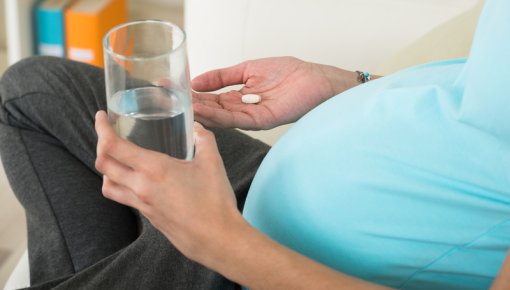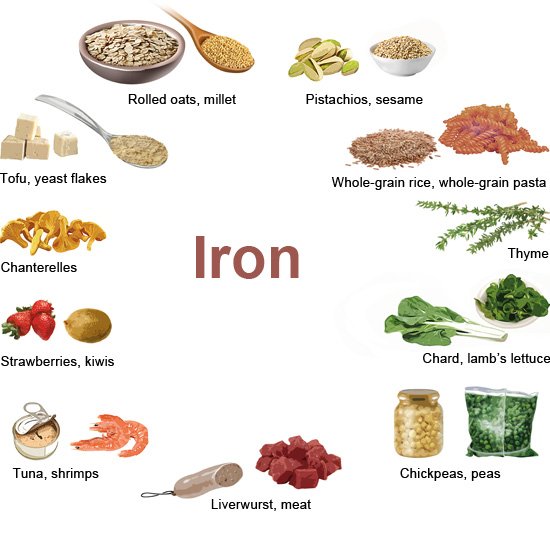Iron deficiency in pregnancy

The risk of developing anemia due to a lack of iron is greater in pregnant women. People who have anemia are advised to take iron supplements. In pregnant women who have normal iron levels, taking iron supplements as a precautionary measure probably doesn’t have any health benefits. They can get enough iron in their diet.
Iron is a mineral that is found in many proteins that the body needs in order to stay healthy. Most of the iron in our bodies is found inside hemoglobin (the pigment in red blood cells). Hemoglobin transports oxygen to all of the tissues and organs in our body. If there isn’t enough iron in the blood, the amount of hemoglobin in the blood decreases too. This can reduce the oxygen supply to cells and organs.
The body can store small amounts of iron. If you don’t get enough iron, your body will use these reserves to make hemoglobin. If your iron reserves are empty, you may already have symptoms like tiredness or headaches despite still having normal hemoglobin levels.
Anemia (a lack of healthy red blood cells) can develop over time. If it's caused by low iron levels, it's called iron-deficiency anemia. Because pregnant women need more iron, they are more likely to develop iron-deficiency anemia.

